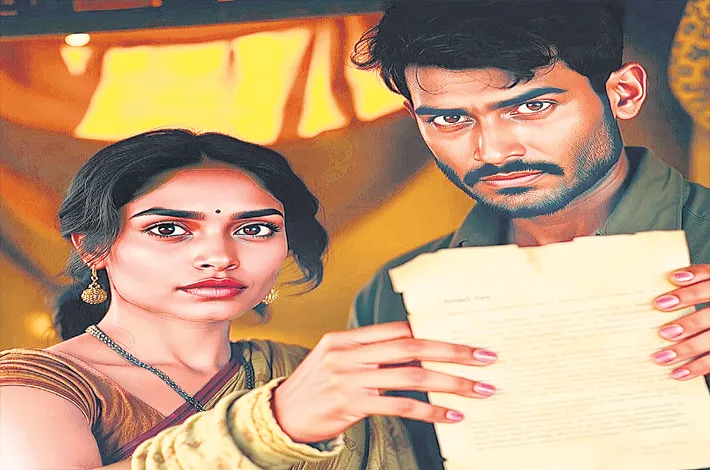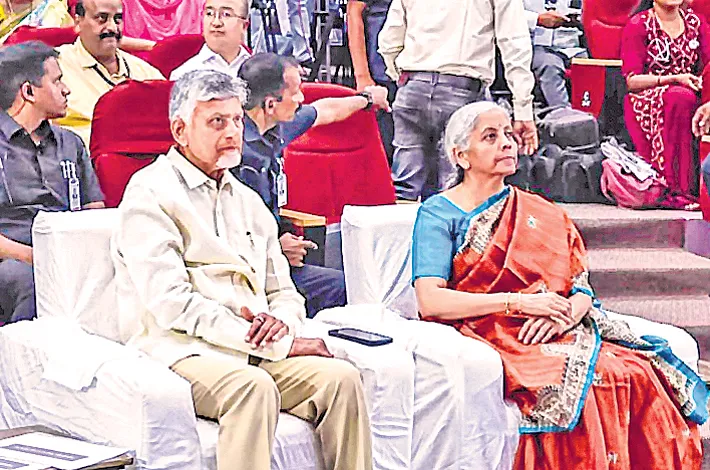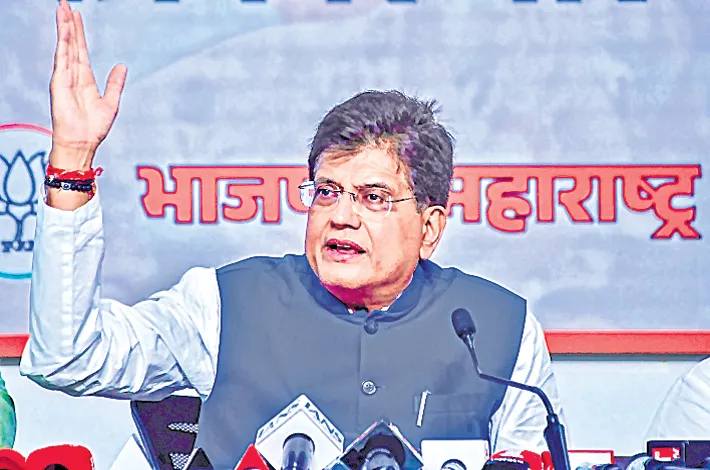The Lantern’s Glow in Nandigram
24-08-2025 12:00:00 AM

In the sleepy village of Nandigram, where the Hooghly River whispered secrets to the swaying palms, a young postmaster named Arjun arrived from Kolkata. The year was 1920, and the village, with its mud-walled homes and endless paddy fields, felt like a world suspended in time. Arjun, barely twenty-five, was a city boy, his heart tethered to the bustle of trams and the promise of modernity. Yet, here he was, assigned to a crumbling post office where letters arrived like rare birds.
The post office was a small, tin-roofed shack, its walls stained with monsoon tears. Arjun’s only companion was Ratan, a girl of fourteen, all elbows and curiosity, who cooked his meals and swept the floors. She was an orphan, her eyes bright with dreams she could not name. To Arjun, she was a shadow, flitting about with a broom or a clay pot, her chatter a nuisance he barely acknowledged. He spent his evenings writing poetry under the flickering light of a kerosene lantern, dreaming of a transfer back to the city.
One evening, as the cicadas sang, Ratan lingered by the door, watching him scribble. “Dada, what do you write?” she asked, her voice soft but insistent.
“Poems,” Arjun replied curtly, not looking up. “You wouldn’t understand.”
Ratan’s face fell, but she pressed on. “Teach me to read, Dada. I want to know your poems.”
Arjun sighed, his patience thin. But the loneliness of Nandigram had begun to gnaw at him, and her earnestness was a spark in the monotony. Reluctantly, he agreed. Each evening, after the postbags were sorted, he taught her the Bengali alphabet, her small hands tracing letters in the dirt. Ratan learned quickly, her laughter filling the shack when she strung words into sentences. For the first time, Arjun felt a flicker of warmth in this alien place.
Across the village lived Amala, a young bride whose beauty was whispered about like a legend. Her husband, a wealthy landowner, was often away in Kolkata, leaving her in a grand house that felt like a gilded cage. Amala’s obsession was her jewelry—gold bangles that clinked like music, a necklace that caught the sun. She would sit by her window, brushing her long hair, her reflection a ghostly companion. The villagers called her vain, but Arjun, passing by on his rounds, saw something else in her eyes: a hunger for something beyond gold.
One day, a letter arrived for Amala, its edges worn from travel. Arjun delivered it himself, curious about the woman who seemed to belong to another world. She accepted the letter with trembling hands, her bangles chiming. “From my husband,” she said, but her voice was hollow. Arjun lingered, sensing her isolation. “Do you ever leave this house?” he asked.
Amala smiled faintly. “Where would I go? This is my world.”
That night, Arjun wrote a poem about a caged bird, its wings heavy with gold. He read it to Ratan, who clapped, her eyes wide. “It’s about her, isn’t it? The lady with the jewels?”
Arjun shushed her, but his heart stirred. Ratan’s simplicity, her unfiltered joy, was weaving itself into his days. Yet, when news came of his transfer back to Kolkata, he felt relief. The city called, its lights brighter than any lantern. He told Ratan one evening, expecting her to nod and move on. Instead, she froze, her broom falling to the floor.
“You’ll leave me, Dada?” Her voice cracked, a child’s fear breaking through.
Arjun hesitated. “You’ll be fine, Ratan. You can read now. You’ll find your way.”
She ran out, tears streaking her face, leaving Arjun with the weight of her absence. That night, he couldn’t write. The lantern’s glow seemed dimmer, the village quieter.
The next day, Amala’s house was abuzz with whispers. She was gone, her jewelry missing, her husband’s letter crumpled on the floor. Some said she’d fled to Kolkata, chasing a freedom her gold couldn’t buy. Others swore they saw her ghost by the river, her bangles glinting in the moonlight. Arjun, unsettled, wondered if she’d read his poem in the stars.
On his last day in Nandigram, Arjun packed his trunk, the post office eerily silent. Ratan hadn’t returned. As he locked the door, he found a scrap of paper tucked beneath the lantern, scrawled in her uneven hand: “Dada, your poems are my city. Don’t forget me.”
Arjun stood still, the river’s murmur filling the air. He thought of Ratan’s laughter, Amala’s longing, and the village that had quietly claimed a piece of him. Kolkata’s lights no longer seemed so bright. Tucking the note into his pocket, he walked to the riverbank, hoping to see Ratan one last time. The lantern’s glow faded behind him, but her words burned bright, a tether to a place he might one day call home.








